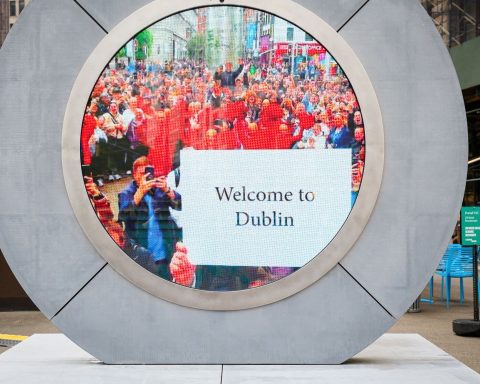[ad_1]


Introduction to Digital Book Clubs: Revitalizing Reading in the Virtual World
In a world where screens often dominate our attention, the timeless tradition of book clubs is being reborn through the power of digital platforms. No longer confined to living rooms and libraries, book clubs have found a new lease on life in the virtual sphere. This shift is not just revitalizing interest in literary pursuits; it’s reshaping the way we interact with reading as a social activity. In this digital age, readers are uniting under the banner of shared narratives and communal discovery, bringing the concept of the reading community into the twenty-first century.
The Global Village of Readers: Breaking Down Geographical Barriers
Gone are the days when a book club’s membership was determined by geography. Online platforms have turned the globe into a village square for book lovers, with participants hailing from a multitude of backgrounds and time zones. This digital transformation enables rich, diverse conversations that were once impossible in traditional book clubs. By joining forces online, readers can explore perspectives that transcend their immediate environment, fostering understanding and empathy across distances.
The Rise of Online Platforms in Connecting Literature Lovers
Online platforms and social media have become the gathering grounds for reading enthusiasts. Websites devoted to book discussions, forums, and virtual book clubs are leading a renaissance in literary discourse. Platforms such as Goodreads, Book Riot, and many others serve not only as repositories for book reviews but also as hubs for passionate readers seeking kindred spirits. By connecting literature lovers, these digital arenas offer a unique opportunity to keep the spirit of reading alive and vibrant.
Accessibility and Inclusivity: How Digital Book Clubs are Opening Up Discussions
One of the sterling advantages of digital book clubs is their ability to broaden participation. No one is too far to take part, and the digital divide is continually narrowing as technology becomes more pervasive. Members with disabilities, transportation issues, or limited free time can now engage in literary discussions as easily as their local counterparts. Furthermore, the online setting allows for anonymity, which can be empowering for individuals who may feel intimidated by face-to-face dialogue.
Navigating the Social Dynamics of Virtual Reading Communities
While the essence of book club discussions remains, the social dynamics in a virtual community can be markedly different. Dialogue often happens through typed comments, which requires clarity and thoughtfulness to avoid misunderstandings. Unlike the spontaneous nature of in-person exchanges, online discussions can be asynchronous, giving individuals the chance to reflect and compose their insights. Moderators or group leaders often play a crucial role in facilitating discussions and ensuring that the environment remains positive and productive.
Curating Literary Experiences in the Digital Age
The role of the curator is pivotal in digital book clubs. A curator strategizes the selection of books, weaving themes and diverse genres to create an engaging itinerary through literary landscapes. They might also craft reading schedules and discussion prompts to keep the group focused. In addition, several online book clubs partner with authors and publishers to offer live Q&A sessions, providing an enhanced reading experience that eclipses traditional book club capabilities.
The Sense of Belonging in Online Book Clubs: Shared Discovery and Support
Despite the lack of physical meetups, a profound sense of community prevails within online book clubs. Members share the journey of delving into new worlds and ideas, which often leads to shared revelations and a collective sense of accomplishment. Many book club members are finding enduring friendships and supportive networks in these digital gathering places, substituting the warmth of in-person interaction with the glow of shared literary passion.
Conclusion: The Future of Reading Communities – Sustaining Engagement Through Innovation
The growing prevalence of digital book clubs stands as a testament to the evolving nature of reading communities. By embracing innovation and digital tools, these clubs are not only sustaining interest in reading but are flourishing. The future of book clubs may involve a blend of virtual and physical experiences, with augmented reality experiences or hybrid meetups offering fresh dimensions to book discussions. As digital platforms continue to evolve, they will undoubtedly fuel the imaginations of readers and sustain vibrant, engaged reading communities for years to come. With every page turned and every new member joined, book clubs reimagined for the digital age promise a world where the love for literature is continuously renewed and celebrated.
[ad_2]







